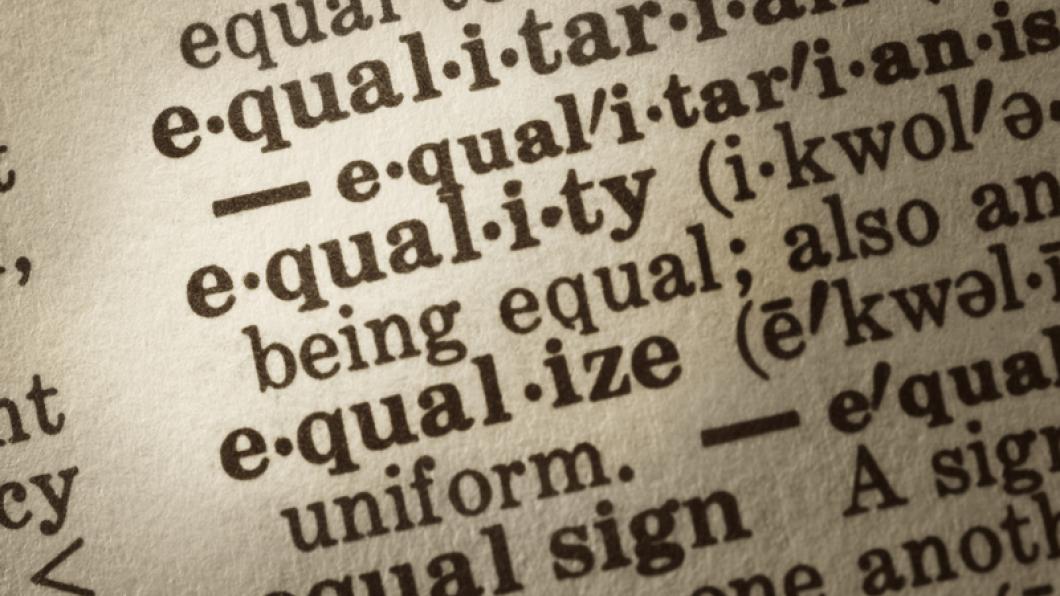
Human equality, not 'cruelly cold rationality,' must underpin pandemic health plans, ethicist says
By Louise Kinross
"Human lives are all of equal value."
It seems like a simple, obvious idea, but it's been given short shrift in pandemic plans for rationing health care that we've written about in light of COVID-19.
So it was heartening to see this principle emphasized in a joint statement two days ago from 20 American doctors, bioethicists and academics. "The lives of all human beings are of inherent, equal, and indeed incalculable value," they wrote. "A patient who—even if successfully treated—is likely to live only a few more years is, here and now, equal in dignity to one who may live for decades if successfully treated."
The authors pointed to an opinion piece in the New York Daily News by Dr. Daniel Sulmasy, and agreed with his premise that "judgments about who gets treatment should be based on whether the treatment is worthwhile, not on whether the patient is 'worthy' of treatment."
Sulmasy, acting director of the Kennedy Institute of Ethics at Georgetown University, wrote that we must not "discriminate against patients by rationing on the basis of age, social worth or disability. A crisis can sometimes provoke cruelly cold rationality, thinking merely about maximizing the total 'quality-adjusted life years' saved. We must remember that all patients are of equal dignity and equally worthy of our efforts to help them."
So while guidelines published recently in the New England Journal of Medicine advocated allocating care to save the most lives, and to give priority to patients likely to survive longest, which may include removing an existing patient from a ventilator or ICU bed to give it to someone with a better prognosis, Sulmasy wrote: "This is not the time for simplistic utilitarian policymaking.
"We should not declare all ventilators up for grabs so that we would (wrongly) feel justified in taking one away from a chronically disabled person in order to serve someone we think has more useful years to live," he wrote.
A number of Canadian critical-care doctors and ethicists argued against withholding care in this pandemic from people with cognitive disability. "If patients have healthy lungs, hearts, and immune systems, there is no medical or ethical reason to bar them from benefitting from resources simply based on cognitive deficit," they wrote in this letter to the Canadian Medical Association Journal.
I wanted to understand better where the concept of patients having equal value, rather than representing a number of life years, comes from, so I asked Dr. Sulmasy over e-mail.
"...Philosophically, the radical equality of persons is often attributed to Kant's view of human dignity," he wrote back. "[Kant] argued that every person is an end in himself or herself and should be treated as such. Elsewhere, he writes 'humanity itself is a dignity.' Many religions make similar claims about all people being equal in the eyes of the deity—for Christians and Jews from being made in God's image; for Muslims from being equally distant from Allah."
Why then, I asked, do we tend to see in times of pandemics more of a focus on utilitarian ideas like maximizing 'life years?'
"People panic when a crisis hits and many people are saying the situation is so grave we must change our ethics," he wrote me. "These underlying utilitarian impulses then emerge. In my view however, the circumstances ought not change our ethical principles. We must always apply those principles to the circumstances at hand, but the ethics are the same. And when the circumstances are extraordinary we need our principles more than we did before."
If you haven't read Sulmasy's article, it's well worth a read. "As physicians, nurses, emergency medical technicians, and, above all, as human beings, we need to devote ourselves to the care of all sick and injured persons, regardless of their personal characteristics or our perceptions of them," he wrote.